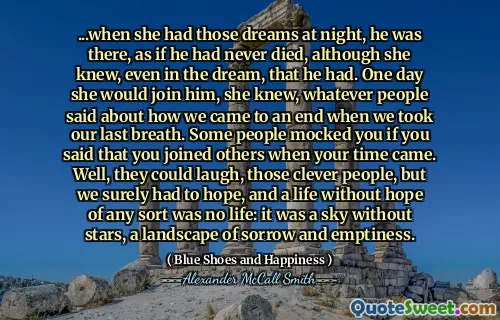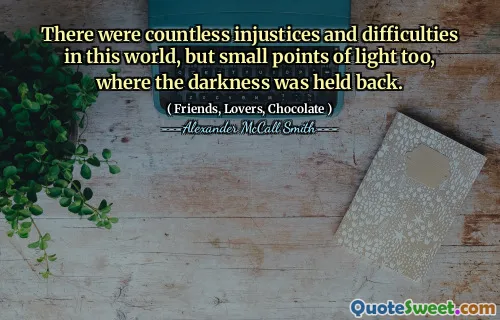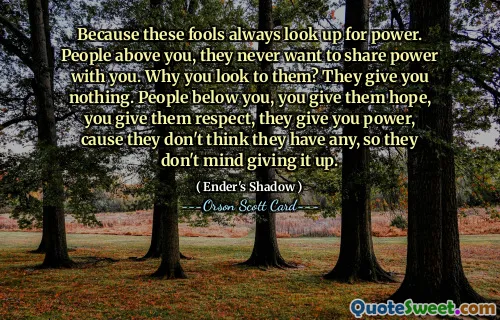There was a time in Africa the people could fly. Mauma told me this one night when I was ten years old. She said, "Handful, your granny-mauma saw it for herself. She say they flew over trees and clouds. She say they flew like blackbirds. When we came here, we left that magic behind." She looked at my face, how it flowed with sorrow and doubt, and she said, "You don't believe me? Where you think these shoulder blades of yours come from, girl?"We weren't some special people who had lost our magic. We were slave people, and we weren't going anywhere. It was later I saw what she meant. We could fly all right, but it wasn't any magic to it.
In the story, Mauma shares a powerful memory from Africa with her granddaughter, Handful, revealing that their ancestors once had the ability to fly like birds. This nostalgic tale highlights a time filled with wonder and magic, contrasting sharply with their current reality as slaves in America. Mauma's words emphasize a lost heritage and the pain of their current existence, filled with sorrow and disappointment.
As Handful grapples with disbelief, Mauma urges her to understand the roots of their identity. She suggests that the remnants of their ancestors’ magic lie within them, symbolized by their shoulder blades. While they may have lost the literal ability to fly, the essence of that freedom and resilience remains part of who they are, showcasing a profound connection to their past amid the harsh realities of slavery.





